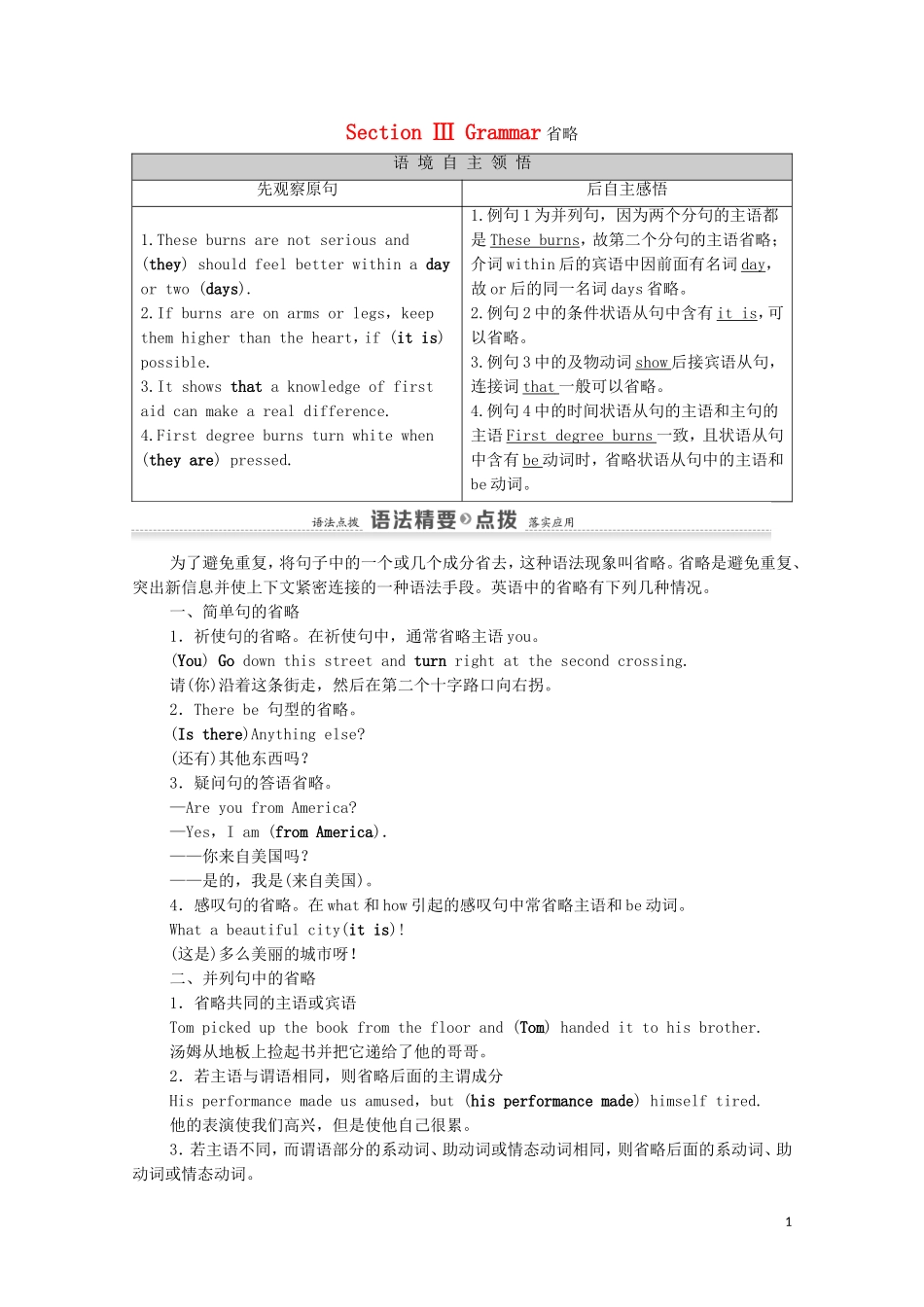Section Ⅲ Grammar 省略语 境 自 主 领 悟先观察原句后自主感悟1.These burns are not serious and (they) should feel better within a day or two (days).2.If burns are on arms or legs,keep them higher than the heart,if (it is) possible.3.It shows that a knowledge of first aid can make a real difference.4.First degree burns turn white when (they are) pressed.1.例句 1 为并列句,因为两个分句的主语都是 These burns,故第二个分句的主语省略;介词 within 后的宾语中因前面有名词 day,故 or 后的同一名词 days 省略。2.例句 2 中的条件状语从句中含有 it is,可以省略。3.例句 3 中的及物动词 show 后接宾语从句,连接词 that 一般可以省略。4.例句 4 中的时间状语从句的主语和主句的主语 First degree burns 一致,且状语从句中含有 be 动词时,省略状语从句中的主语和be 动词。为了避免重复,将句子中的一个或几个成分省去,这种语法现象叫省略。省略是避免重复、突出新信息并使上下文紧密连接的一种语法手段。英语中的省略有下列几种情况。一、简单句的省略1.祈使句的省略。在祈使句中,通常省略主语 you。(You) Go down this street and turn right at the second crossing.请(你)沿着这条街走,然后在第二个十字路口向右拐。2.There be 句型的省略。(Is there)Anything else?(还有)其他东西吗?3.疑问句的答语省略。—Are you from America?—Yes,I am (from America).——你来自美国吗?——是的,我是(来自美国)。4.感叹句的省略。在 what 和 how 引起的感叹句中常省略主语和 be 动词。What a beautiful city(it is)!(这是)多么美丽的城市呀!二、并列句中的省略1.省略共同的主语或宾语Tom picked up the book from the floor and (Tom) handed it to his brother.汤姆从地板上捡起书并把它递给了他的哥哥。2.若主语与谓语相同,则省略后面的主谓成分His performance made us amused,but (his performance made) himself tired.他的表演使我们高兴,但是使他自己很累。3.若主语不同,而谓语部分的系动词、助动词或情态动词相同,则省略后面的系动词、助动词或情态动词。1Xiaoming must have been playing football at that time,and his s...


